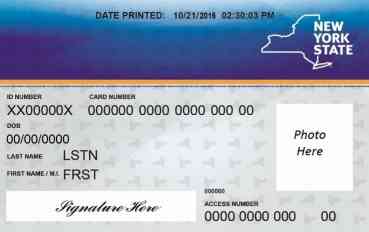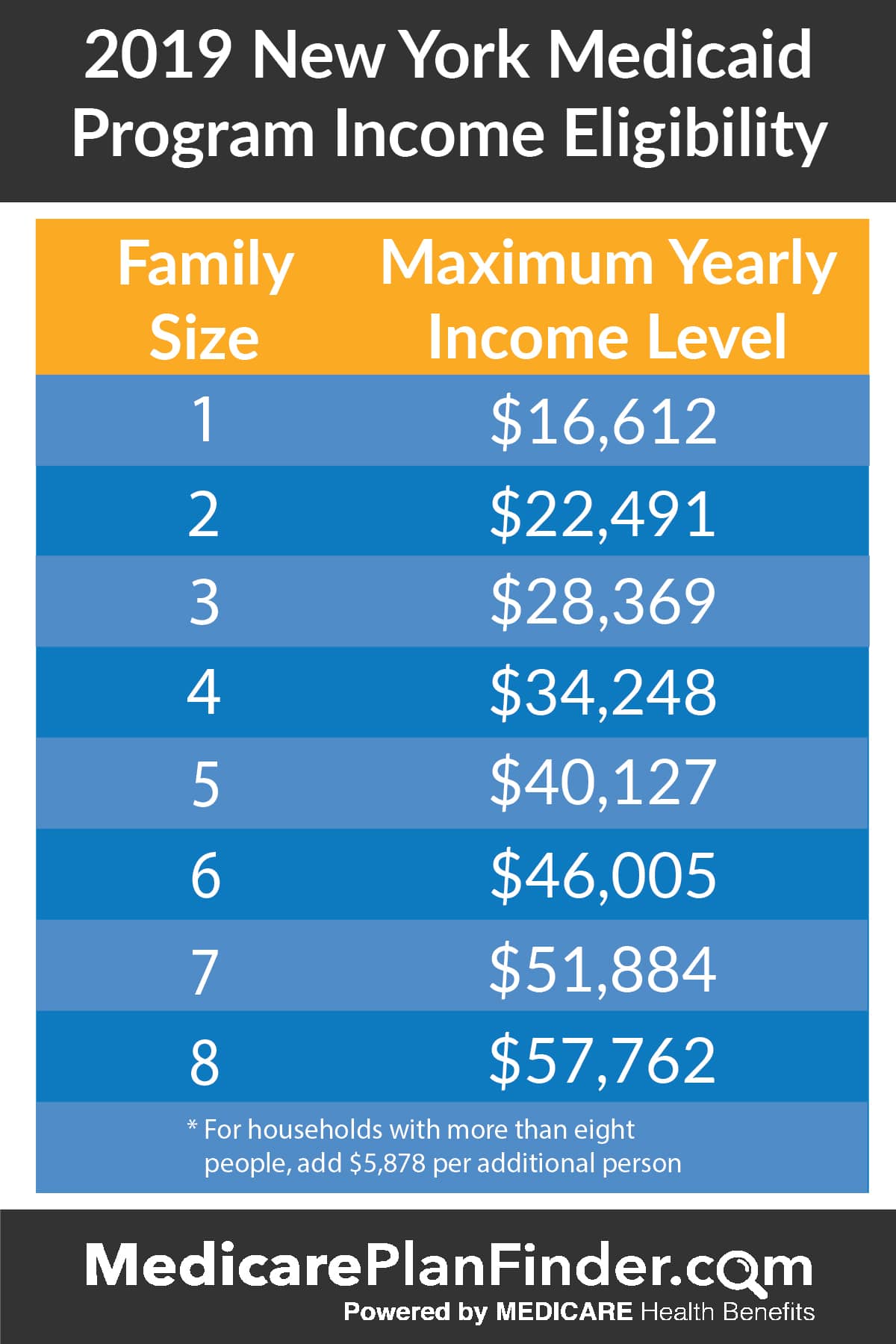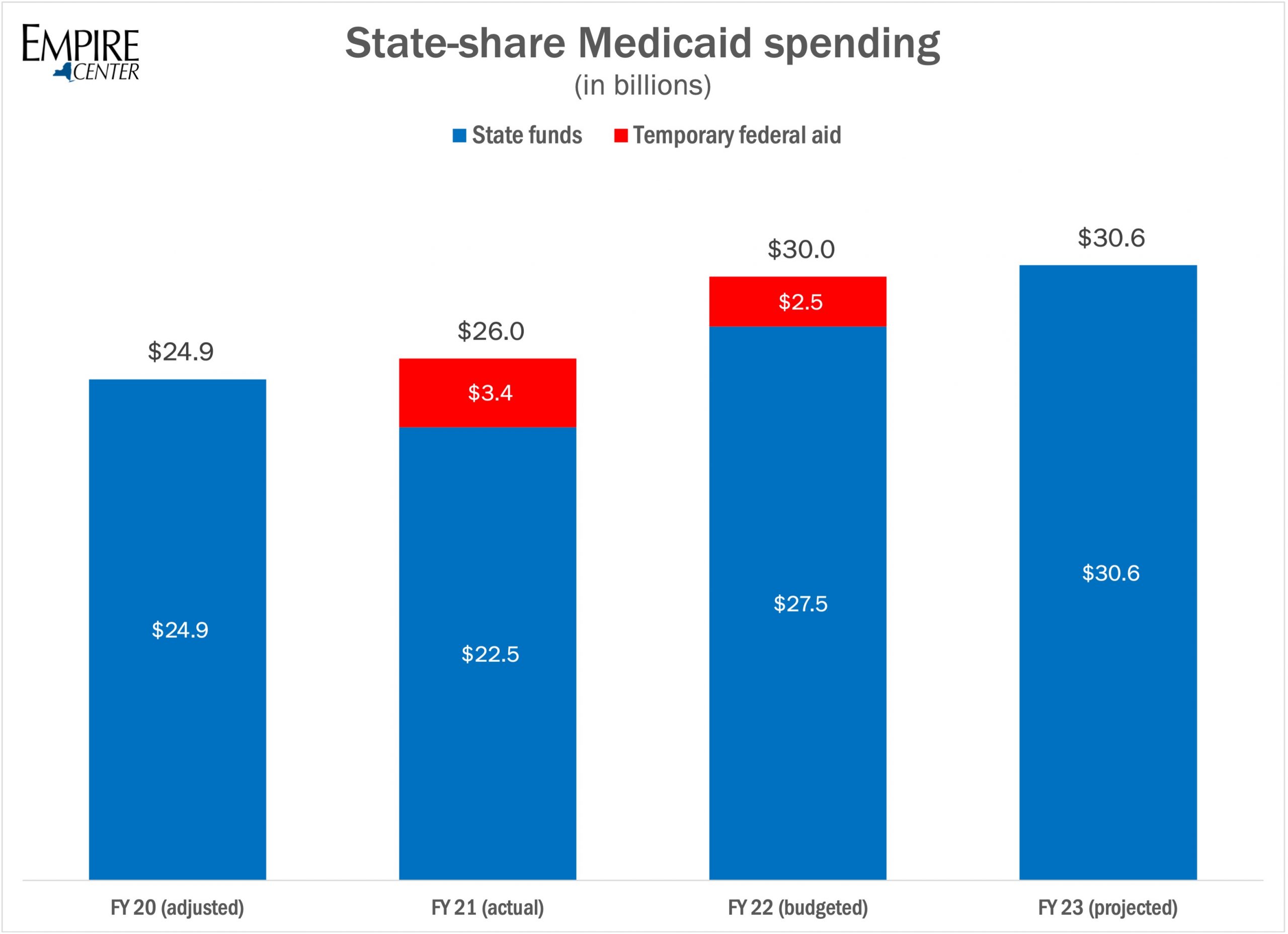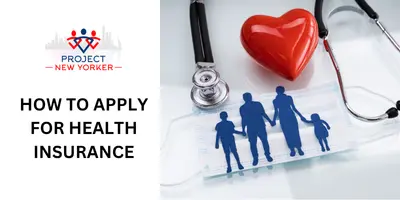What’s Covered by Medicaid in New York? A Quick Guide
Medicaid in New York offers a range of health services. It provides vital support for many residents.
Understanding what Medicaid covers in New York can be crucial for those seeking affordable health care. This program is designed to assist low-income individuals and families, giving them access to necessary medical services. Navigating Medicaid can sometimes be confusing due to its complex structure and varying benefits.
Knowing what’s covered can make a big difference in managing health costs and ensuring proper care. From hospital visits to prescription drugs, Medicaid aims to cover essential health needs. Let’s explore how this program can support your health journey and what specific services you can expect under its coverage in New York.

Credit: www.health.ny.gov
Medicaid Basics
Understanding Medicaid in New York is essential for those seeking affordable healthcare. Medicaid offers a wide range of medical services to eligible residents. This government program aims to help low-income individuals and families access necessary medical care. Knowing what Medicaid covers can guide you in making informed health choices.
Eligibility Criteria
To qualify for Medicaid in New York, you must meet certain requirements. These criteria determine who can receive benefits.
Medicaid eligibility is based on several factors:
- Income Level: Your income must be below a specific limit, which varies by household size.
- Age: Children, pregnant women, adults, and seniors each have different income thresholds.
- Disability: Individuals with disabilities may qualify for Medicaid.
- Residency: You must reside in New York State.
- Citizenship: U.S. citizens and certain immigrants may apply.
The table below summarizes income limits for different groups:
| Household Size | Monthly Income Limit |
|---|---|
| 1 | $1,482 |
| 2 | $2,004 |
| 3 | $2,526 |
Eligibility can change, so it’s important to check the latest guidelines regularly.
Enrollment Process
Enrolling in Medicaid in New York is a straightforward process, but it requires attention to detail.
Here’s how you can apply:
- Gather Documents: Collect necessary documents like ID, proof of income, and residency.
- Online Application: Apply through the New York State of Health website.
- In-Person Assistance: Visit a local Department of Social Services office for help.
- Phone Application: Call the Medicaid helpline for guidance.
The application will require personal information, so ensure all details are correct. After submission, your application will be reviewed. You will receive a decision in the mail or online. This process can take a few weeks, so patience is key. If approved, you will receive a benefits card to access medical services.
Essential Health Benefits
Medicaid in New York provides a range of essential health benefits. These benefits help cover medical care for eligible individuals and families. Understanding what’s covered is crucial. It ensures recipients receive the necessary care without financial stress. The coverage includes both inpatient and outpatient services. Each plays a vital role in comprehensive healthcare.
Inpatient Services
Inpatient services involve staying at a hospital for treatment. Medicaid in New York covers various inpatient services. These services are essential for those needing intensive care.
- Hospital Stays: Medicaid covers room and board during hospital stays.
- Surgeries: Necessary surgical procedures are covered under inpatient services.
- Medical Tests: Tests such as MRIs and blood tests are included during hospital stays.
- Specialist Care: Access to specialists for necessary treatments is provided.
Medicaid ensures coverage for both short-term and long-term hospital stays. This support is vital for those with chronic conditions. It also covers maternity care, including delivery and postnatal care.
| Service | Coverage |
|---|---|
| Hospital Stay | Full Coverage |
| Surgeries | Full Coverage |
| Tests | Full Coverage |
| Specialist Care | Full Coverage |
Outpatient Services
Outpatient services are medical procedures or tests that don’t require a hospital stay. Medicaid in New York offers coverage for a variety of outpatient services. These services help maintain health without an overnight stay.
- Doctor Visits: Regular check-ups and specialist consultations are covered.
- Diagnostic Tests: Tests like X-rays and blood tests conducted outside of hospitals are included.
- Therapies: Physical, occupational, and speech therapies are part of outpatient services.
- Preventive Care: Vaccinations and screenings are covered to prevent illnesses.
Medicaid also covers outpatient mental health services. This includes therapy sessions and consultations. Prescription medications are available at reduced costs. Many individuals rely on these services for managing ongoing health issues.
| Service | Coverage |
|---|---|
| Doctor Visits | Full Coverage |
| Diagnostic Tests | Full Coverage |
| Therapies | Full Coverage |
| Preventive Care | Full Coverage |
Long-term Care Services
Medicaid in New York provides essential support for those requiring long-term care services. This program covers various services that help individuals maintain their quality of life while dealing with chronic illnesses or disabilities. Long-term care services are especially crucial for seniors and disabled individuals who need ongoing assistance. Whether in a nursing home or at home, Medicaid ensures that these individuals receive the care they need without financial strain. Let’s explore the specific services offered under long-term care in New York.
Nursing Home Coverage
Medicaid offers comprehensive nursing home coverage in New York. This is vital for individuals who require round-the-clock medical attention and personal care. Nursing homes provide a safe environment with skilled professionals available 24/7. Medicaid covers the following aspects:
- Room and Board: Medicaid covers the cost of living in the nursing home.
- Medical Services: Includes physician visits, medications, and therapies.
- Personal Care: Assistance with daily activities like bathing and dressing.
- Specialized Services: Includes services for those with specific health needs, such as dementia care.
Eligibility for nursing home coverage requires meeting specific financial and medical criteria. Medicaid ensures that qualified individuals receive necessary care without the burden of high costs.
Below is a summary table of what nursing home coverage entails:
| Service | Description |
|---|---|
| Room and Board | Accommodation in the nursing facility. |
| Medical Services | Doctor visits, medications, and therapies. |
| Personal Care | Help with daily living activities. |
| Specialized Services | Care for specific health conditions. |
Home Health Aide Support
Medicaid also covers home health aide services for those preferring to stay at home. Home health aides assist with daily living and medical tasks, providing comfort and support in familiar surroundings. Coverage includes:
- Personal Care Assistance: Aides help with bathing, dressing, and grooming.
- Medical Tasks: Assistance with medication management and minor medical procedures.
- Household Help: Light housekeeping and meal preparation.
- Companionship: Aides offer emotional support and companionship.
Home health aides are trained professionals who ensure the safety and well-being of their clients. Medicaid’s coverage for these services allows individuals to maintain their independence while receiving necessary support. This option is ideal for those who prefer the comfort of their own home.
Below is a summary table of what home health aide support entails:
| Service | Description |
|---|---|
| Personal Care Assistance | Help with daily activities like bathing and dressing. |
| Medical Tasks | Medication management and minor procedures. |
| Household Help | Light housekeeping and meal preparation. |
| Companionship | Emotional support and companionship. |

Credit: www.medicareplanfinder.com
Mental Health Services
Medicaid in New York offers comprehensive mental health services to support residents in need. With a focus on accessibility, these services aim to provide crucial assistance to individuals experiencing mental health challenges. Understanding what’s covered can help residents make informed decisions about their care and well-being. The program includes a variety of support, from counseling to specialized treatment, ensuring a holistic approach to mental health.
Counseling And Therapy
New York Medicaid covers a wide range of counseling and therapy services. These are designed to help individuals manage stress, depression, anxiety, and other mental health issues. The services are offered by licensed professionals, including psychiatrists, psychologists, and social workers. This ensures that recipients receive quality care tailored to their unique needs.
- Individual therapy sessions focus on personal issues and coping strategies.
- Group therapy offers peer support and shared experiences.
- Family counseling helps resolve conflicts and improve communication.
- Teletherapy options provide remote access to mental health professionals.
Medicaid recipients can choose from various providers, ensuring flexibility and personalized care. A table detailing therapy options might look like:
| Service | Provider | Mode |
|---|---|---|
| Individual Therapy | Licensed Psychologist | In-person/Online |
| Group Therapy | Certified Counselor | In-person |
| Family Counseling | Social Worker | In-person/Online |
Substance Abuse Treatment
Medicaid in New York provides essential services for substance abuse treatment. This support is vital for individuals seeking recovery and a healthier lifestyle. The program covers several treatment options to address addiction issues effectively.
- Detoxification programs help safely manage withdrawal symptoms.
- Residential treatment facilities offer structured environments for recovery.
- Outpatient programs provide flexibility for ongoing care.
- Medication-assisted treatment (MAT) combines therapy with medications.
The coverage ensures that individuals have access to comprehensive care, including therapy and medical support. Here’s a snapshot of available substance abuse treatments:
| Treatment | Description | Availability |
|---|---|---|
| Detoxification | Short-term management of withdrawal | 24/7 Facilities |
| Residential Treatment | Long-term structured care | Various Locations |
| Outpatient Programs | Flexible therapy sessions | Local Clinics |
| Medication-Assisted Treatment | Combination of medication and therapy | Specialized Centers |
Preventive Services
Medicaid in New York offers a wide array of benefits for eligible individuals. One key area is preventive services. These services help maintain health and detect problems early. Early detection can lead to better outcomes and lower healthcare costs. Understanding what preventive services are covered can ensure that you take full advantage of these benefits.
Screenings And Immunizations
Preventive services under Medicaid in New York include essential screenings and immunizations. These are crucial for early detection and prevention of diseases.
Here are some of the screenings covered:
- Cancer Screenings: Regular screenings for breast, cervical, and colorectal cancers.
- Cholesterol Tests: Monitoring cholesterol levels to prevent heart disease.
- Blood Pressure Screenings: Regular checks to detect hypertension early.
- Diabetes Screenings: Tests to detect diabetes or pre-diabetes conditions.
Immunizations protect against various diseases. They are especially important for children, but adults need them too. Medicaid covers:
- Influenza Vaccine: Yearly flu shots.
- Measles, Mumps, and Rubella (MMR): Essential childhood vaccinations.
- Hepatitis Vaccinations: Protection against Hepatitis A and B.
- COVID-19 Vaccine: Vaccination against coronavirus.
These screenings and immunizations are vital for maintaining a healthy lifestyle. They help catch diseases early and prevent serious health issues.
Wellness Visits
Medicaid in New York also covers wellness visits. These visits are essential for monitoring health and preventing diseases.
During a wellness visit, you can expect:
- Health Assessments: Evaluation of overall health status.
- Personalized Health Advice: Guidance on diet, exercise, and lifestyle choices.
- Goal Setting: Help in setting and achieving health goals.
Wellness visits often include discussions on:
- Family health history.
- Current medications and treatments.
- Preventive measures specific to your age and health.
These visits provide an opportunity to discuss any health concerns. They help in creating a tailored plan for maintaining or improving health. Regular wellness visits can lead to early detection of potential health issues. This proactive approach can result in better health outcomes and a higher quality of life.

Credit: www.empirecenter.org
Prescription Drugs
Medicaid in New York offers essential health coverage, including prescription drugs, for eligible residents. This program ensures access to necessary medications, which can significantly ease the financial burden for individuals and families. Understanding what medications are covered and the related requirements can help beneficiaries make informed decisions about their health care.
Covered Medications
Medicaid in New York covers a wide range of medications. This helps individuals manage their health conditions effectively. Here is a breakdown of the types of medications generally covered:
- Generic drugs
- Brand-name drugs, when no generic is available
- Over-the-counter medications, if prescribed
- Vaccines
Medicaid ensures that both generic and brand-name medications are accessible. Generic drugs are usually preferred due to their cost-effectiveness. Yet, brand-name drugs may also be covered if no generic equivalent exists.
Over-the-counter medications can be covered if a doctor prescribes them. This includes common drugs like pain relievers and allergy medicines. Immunizations are also part of the covered medications, ensuring preventive care is accessible.
| Medication Type | Coverage Status |
|---|---|
| Generic Drugs | Covered |
| Brand-Name Drugs | Covered (when no generic available) |
| Over-the-Counter Medications | Covered (if prescribed) |
| Vaccines | Covered |
Prior Authorization Requirements
Some medications require prior authorization before Medicaid covers their cost. This process ensures that the prescribed medication is necessary and appropriate.
Prior authorization is typically needed for:
- High-cost medications
- Drugs not listed on the preferred drug list
- Medications used for non-standard treatments
The process involves a healthcare provider submitting a request. They must justify the need for the specific medication. This helps verify that the drug is essential for the patient’s treatment.
The prior authorization process can vary in duration. Generally, providers should submit the necessary forms and documentation in a timely manner to avoid delays in treatment. It is crucial for patients to communicate with their healthcare providers about any medications that might require this step.
Understanding these requirements can help ensure that patients receive their medications without unnecessary hurdles. Beneficiaries should consult with their healthcare providers to navigate the authorization process smoothly.
Additional Benefits
Medicaid in New York offers a wide range of healthcare services to support those in need. While many know about the primary medical services, there are also several additional benefits that enhance overall well-being. These extra services ensure comprehensive coverage beyond basic healthcare needs. Let’s dive into some of the noteworthy additional benefits available under Medicaid in New York.
Dental And Vision Care
Dental and vision care are crucial aspects of maintaining overall health. Under Medicaid in New York, individuals can access various dental and vision services that can significantly impact their quality of life. Dental coverage typically includes:
- Routine exams
- Cleanings
- Fillings
- Extractions
These services aim to prevent dental issues before they become serious. Regular cleanings help maintain oral health, while fillings address cavities early on.
Vision care is equally important. Medicaid covers eye exams and prescription glasses. Clear vision is essential for daily tasks, and these services ensure that vision problems are addressed promptly. Eye exams can also detect eye diseases early, preventing potential complications.
| Service | Coverage |
|---|---|
| Dental Exams | Routine check-ups and preventive care |
| Vision Exams | Regular eye checks and prescription lenses |
Both dental and vision care are vital for everyone. Ensuring access to these services under Medicaid helps maintain a healthy lifestyle.
Transportation Services
Transportation can be a barrier to accessing necessary healthcare. Medicaid in New York addresses this by offering transportation services. These services ensure patients can attend their medical appointments without hassle.
Transportation benefits include:
- Non-emergency transport
- Emergency transport
- Scheduled rides to medical facilities
Non-emergency transport is particularly beneficial for routine check-ups and follow-up appointments. Emergency transport ensures quick response during urgent medical situations, providing peace of mind.
Scheduled rides are convenient for patients who may face challenges using public transportation. This service removes the stress of figuring out how to get to appointments.
Transportation services enhance access to healthcare, ensuring everyone receives timely medical attention. It’s an essential benefit for those who depend on Medicaid for their healthcare needs.
Challenges And Limitations
Medicaid in New York offers essential health coverage to many residents, ensuring they receive necessary medical care. Yet, it faces several challenges and limitations that can impact its effectiveness. Some individuals find gaps in coverage or struggle to access qualified providers. Understanding these issues can help people navigate the system better and identify areas for improvement.
Coverage Gaps
Despite its broad coverage, Medicaid in New York can have significant coverage gaps that affect beneficiaries. Some services may not be included, leaving individuals to find alternative solutions or incur out-of-pocket expenses. Common areas where gaps are evident include:
- Dental care: Basic procedures are covered, but advanced treatments may not be.
- Vision services: Limited coverage for glasses or contact lenses.
- Long-term care: Restrictions on nursing home coverage.
The following table outlines some key areas and their limitations:
| Service Type | Coverage Limitation |
|---|---|
| Mental Health | Limited therapy sessions |
| Prescription Drugs | Restricted formulary options |
| Rehabilitation Services | Limited duration for physical therapy |
Understanding these gaps can help individuals prepare and explore additional insurance options to cover what Medicaid may not.
Access To Providers
Finding providers who accept Medicaid can be challenging for many beneficiaries. Not all doctors and specialists participate in the Medicaid program. This limits choices and accessibility for those seeking care. Key issues include:
- Limited network: Fewer providers available in rural areas.
- Appointment delays: Longer wait times to see specialists.
- Quality concerns: Variation in service quality among providers.
Beneficiaries might need to travel long distances to find the right care. Urban areas usually have more options, but rural residents face significant barriers. Exploring community health centers or telemedicine can sometimes bridge the gap, offering more accessible options. Ensuring timely care and maintaining provider relationships becomes crucial for effective healthcare management.
Frequently Asked Questions
What Is Covered Under Medicaid In Ny?
Medicaid in NY covers doctor visits, hospital care, lab tests, prescriptions, mental health services, and dental care. It also includes vision services, nursing home care, and transportation for medical appointments. Coverage may vary based on individual eligibility and needs.
What Things Does Medicaid Not Cover?
Medicaid does not cover cosmetic surgeries, private nursing, or over-the-counter medications. It excludes certain dental procedures and chiropractic services. Long-term care in nursing homes may have limitations. Experimental treatments and personal comfort items are generally not included in Medicaid coverage.
What Does Medicaid Pay For?
Medicaid covers doctor visits, hospital stays, nursing home care, and home health services. It also includes dental, vision, and prescription drugs. Coverage may vary by state, so check local guidelines for specifics. Medicaid aims to provide essential healthcare services to eligible low-income individuals and families.
What Does Medicaid Cover For Dental For Adults In Ny?
Medicaid in New York covers essential dental services for adults. This includes exams, cleanings, fillings, and extractions. Dentures and other necessary services may also be covered. Coverage can vary, so it’s important to check specific benefits with your provider.
Conclusion
Medicaid in New York offers crucial health services for eligible residents. These include doctor visits, hospital care, and prescription drugs. Coverage extends to dental and vision care, too. Mental health support and home health services are also part of the program.
Understanding your benefits can lead to better health choices. Always check for updates or changes in coverage. Contact local Medicaid offices for detailed information. This helps ensure you access the care you need. Health is important, and Medicaid aims to support that.
It’s a vital resource for many New Yorkers seeking affordable healthcare.



